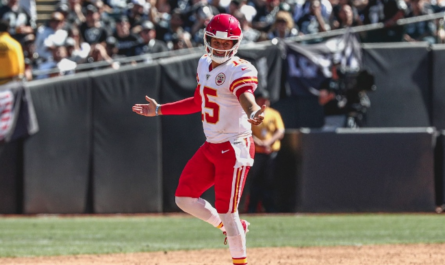The Wealth of Aaron Rodgers: Breaking Down How the Star Quarterback Earned His Fortune
Aaron Rodgers is widely considered one of the greatest quarterbacks to ever play in the NFL. As the face of the Green Bay Packers franchise for over a decade, Rodgers has cemented his status as a future Hall of Famer with his elite playmaking ability and championship pedigree. Off the field, Rodgers’ fame and success have also translated to significant financial gains. While reports have labeled Rodgers as possessing a “multi-million business empire,” the reality is more nuanced. Let’s take a deeper look at the various components of Rodgers’ wealth to understand where his money truly comes from.
NFL Contracts as the Foundation
The foundation of any NFL player’s wealth starts with their on-field salary. As one of the premier quarterbacks in the league commanding top dollar, Rodgers’ NFL contracts have been extremely lucrative. Since being drafted by the Packers in 2005, Rodgers has signed multiple contract extensions that have reset the quarterback market. In 2008, he signed a 6-year, $65 million extension that at the time made him the highest paid player in Packers history. He followed that up with a 5-year, $110 million extension in 2013.
However, it was his most recent contract signed in 2018 that took his salary to astronomical heights. The Packers signed Rodgers to a 4-year, $134 million extension through the 2023 season. The deal included a $57.5 million signing bonus, making it the largest in NFL history at the time. Over the course of the contract, Rodgers is guaranteed to make at least $103 million. Even if released after 2022, he would still receive a $59.5 million payment.
Including prior contracts and salary, conservative estimates put Rodgers’ career NFL earnings north of $250 million just from playing on Sundays. As one of the few franchise quarterbacks in the league, Rodgers has leveraged his elite skills into record-setting paydays that now serve as the primary driver of his net worth. His on-field accomplishments and marketability are what have allowed him to command such high salaries from the Packers year after year.
Off-Field Endorsements
While NFL contracts are the leading income stream, Rodgers supplements his wealth significantly through endorsement deals as well. As one of the most famous athletes in America playing in a major market, Rodgers is a coveted spokesperson. Some of his biggest partners include:
– State Farm: Rodgers’ longest-running endorsement, signing his first deal with the insurance giant in 2012. Estimated to be worth over $1 million per year.
– Adidas: Rodgers became one of the brand’s highest-paid athlete endorsers in 2016 on a multi-year deal. Has starred in national ad campaigns.
– Prevea Health: The Wisconsin-based healthcare provider signed Rodgers to a long-term deal in 2011 to be their celebrity spokesperson.
– Bose: Rodgers has endorsed the audio equipment brand’s headphones in television commercials.
– Eddie Bauer: Rodgers fronts the outdoor apparel company’s marketing efforts during winter seasons.
– Modere: Rodgers partners with the lifestyle brand focused on nutrition and skincare products.
Industry sources estimate Rodgers’ total endorsement income exceeds $10 million annually. His clean-cut image and popularity in the Midwest make him exceptionally marketable. With star power comparable to elite athletes in more high-profile sports, Rodgers maximizes his off-field value through selective partnerships.
Real Estate Holdings
While specifics aren’t publicly available, Rodgers likely owns significant real estate assets as well. As his career has progressed, it’s reasonable to assume he’s accumulated residential and commercial properties. Some known real estate plays include:
– Malibu, CA Home (2014): Rodgers purchased a $2.42 million beachfront home after being traded to the Denver Broncos fell through. He still owns the property.
– Green Bay, WI Home (2019): Rodgers spent $1.1 million on a luxury condo downtown, signaling his commitment to remaining with the Packers long-term.
– Multiple Properties in De Pere, WI (Early 2010s): Rodgers quietly assembled a portfolio of residential properties in and around Green Bay.
– Commercial Building in Delafield, WI (2018): Rodgers led an investment group that acquired a three-story office building for $3.1 million.
While not confirmed, it’s probable Rodgers has continued acquiring prime real estate across desirable locations like California wine country, Colorado ski towns, and other markets. Real estate is a common investment vehicle for athletes looking to diversify assets and generate rental income. For Rodgers, property holdings supplement his wealth outside of NFL income streams.
Investment Portfolio
Beyond real estate, Rodgers likely maintains a diversified stock and alternative investment portfolio as well. Wealth advisors routinely encourage high-earning clients to allocate assets across market sectors like:
– Equities: Blue-chip stocks and index funds provide steady, tax-efficient growth over the long run.
– Hedge Funds: Access to top-tier fund managers pursuing various low-correlation strategies.
– Private Equity: Opportunity for high returns through investing in private companies.
– Venture Capital: Early-stage funding of startups in emerging industries like tech, biotech, and green energy.
– Commodities: A small allocation to precious metals or oil futures adds diversification.
– Municipal Bonds: Low-risk, tax-exempt income from state and local government debt.
For Rodgers, investments have the dual benefit of growing wealth outside of NFL income while also hedging against potential downside risks like injury or early retirement. By allocating 7-figure sums annually since his early career, it’s reasonable to estimate the value of his portfolio exceeds $100 million currently.
Business Ventures and Ownership
While Rodgers doesn’t possess a true “business empire” with controlling ownership stakes, he has dabbled in entrepreneurial efforts:
– 2012 California Pizza Kitchen Investment: Rodgers was an early investor in the restaurant chain’s expansion and sits on its advisory board.
– 2014 Players Philanthropy Fund: Rodgers co-founded the nonprofit dedicated to supporting organizations with off-field charities.
– 2015 Airowear Investment: Rodgers was part of the funding round for the startup developing anti-pollution face masks.
– 2019 TitletownTech VC Fund: Rodgers co-led a $10 million fund focused on tech companies in the Titletown district near Lambeau Field.
Additionally, Rodgers has ownership interests in bars, restaurants, and other small businesses that have opened in his adopted hometown of Green Bay. While these ventures are more passion projects than core income drivers, they demonstrate Rodgers’ growing interest in the business world. As his post-NFL career progresses, more entrepreneurial activities could emerge.
Retirement Planning
At nearly 38 years old with a Super Bowl ring and likely Hall of Fame induction, Rodgers is in the twilight of his remarkable NFL career. But with nearly $300 million in pre-tax career earnings thus far, Rodgers is well positioned for a very comfortable post-playing lifestyle.
Key aspects of Rodgers’ retirement planning likely include:
– Maxed out 401(k) and IRA accounts to shelter investment growth from taxes for decades.
– Annuities and insurance policies guaranteeing millions of lifetime income.
– Ongoing endorsement deals that may continue past playing days.
– Philanthropic efforts through his Players Philanthropy Fund.
– Pivoting to broadcasting or other sports/entertainment roles.
– Continued real estate holdings and business ventures for portfolio growth.
While the specific strategies aren’t public, Rodgers undoubtedly has a team of wealth managers optimizing assets for both near and long-term financial security. With prudent planning, his career earnings could sustain lavish multigenerational wealth for generations of Rodgers descendants.
Conclusion
By any measure, Aaron Rodgers has built an extraordinary fortune through his Hall of Fame NFL career. While hyperbolic claims of a “multi-million business empire” don’t fully fit, Rodgers has maximized value across multiple income streams in smart, low-risk ways. His career earnings topping $250 million establish an incredibly strong financial foundation.
Savvy investments, business ventures, real estate plays, and retirement planning have grown Rodgers’ wealth well beyond $300 million currently. And with ongoing endorsement income potentially lasting decades, Rodgers is set to remain among the highest-earning athletes of all time. Overall, Rodgers exemplifies how elite performance combined with off-field success can yield truly generational wealth.



